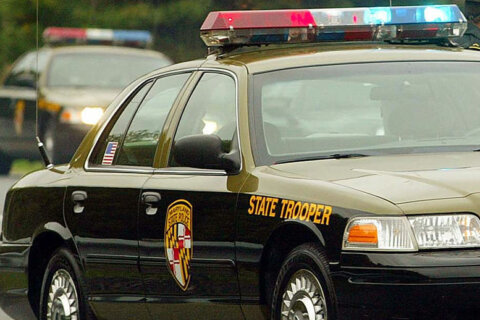This article was republished with permission from WTOP’s news partners at Maryland Matters. Sign up for Maryland Matters’ free email subscription today.
This content was republished with permission from WTOP’s news partners at Maryland Matters. Sign up for Maryland Matters’ free email subscription today.
Democrats in the House of Delegates defeated Republican attempts to amend two marijuana legalization measures on Wednesday, setting the stage for final action by the chamber later this week.
House Bill 1 would establish a referendum on a proposed constitutional amendment that would — if approved — make Maryland the 19th state to allow possession and use of small amounts of marijuana.
HB 837 is “contingent” legislation that would lay out a framework for how legalization would work if the referendum passes in November.
Lawmakers gave preliminary approval to both measures, after debating the issue for nearly 90 minutes with remarkably few fireworks.
In its current form, HB 837, sponsored by House Judiciary Committee chair Luke H. Clippinger (D-Baltimore) would set up a two-stage legalization timeline:
- Effective on Jan. 1, 2023, a conviction for possession of up to 1.5 ounces of marijuana would become a civil offense, with a fine not to exceed $100. Then, on July 1, 2023, Maryland residents would be allowed to possess up to 1.5 ounces.
- Effective on Jan. 1, 2023, a person convicted of having between 1.5 and 2.5 ounces would pay a civil fine of up to $250. After July 1, 2023, possession of 2.5 ounces could generate a civil citation.
- Marylanders would not be allowed to smoke marijuana in public if the referendum passes. A person who does so would be subject to a $50 fine for the first offense and $150 for subsequent offenses.
- One person may “share” cannabis with someone else, provided both persons are at least 21 years of age and there is no payment.
- Individuals may grow as many as two marijuana plants at home, with a limit of two plants per household, regardless of the number of adults living there.
- Home-grown plants must be out of the reach of non-residents and out of public view.
Effective Jan. 1, 2023, possession with intent to distribute would be a misdemeanor, punishable by up to three years in prison and a fine not to exceed $5,000, or both. - Marijuana paraphernalia would become legal, effective Jan. 1, 2023.
- A person charged only with simple possession may have that charged automatically expunged, effective Jan. 1, 2023.
Republicans offered two amendments to the referendum measure and five to the second bill. All were defeated essentially on party-line votes.
One of the GOP-backed amendments would have given counties the ability to opt-out of legalization if the referendum passes. Another sought to toughen the sanctions for smoking marijuana in public, to put them on a par with drinking alcohol in public.
Democrats argued that police already have tools to deal with people who are disorderly in public. “People have full ability to charge for nuisance, disorderly and many other types of conduct that are actually posing a public safety hazard,” said Judiciary Committee Vice Chair David Moon (D-Montgomery).
Democrats also rejected an amendment to give police the power to pull over a motorist observed smoking a marijuana-type cigarette.
A Republican amendment to prohibit the marketing of cannabis products to minors was defeated after a Democratic committee leader said the bill covers the use of candy-looking shapes and flavors.
The most heated debate came during debate on a GOP lawmaker’s proposal to allow law enforcement officers to base a vehicle search “solely on the odor of cannabis or the odor of burnt cannabis.”
“I have talked with a number of police officers,” said Del. Johnny Mautz (R-Middle Shore). “They’ve given me all sorts of information. One that has been paramount is the ability to conduct a search, because that has been an opportunity for them to seize a lot of very dangerous material.”
Del. C.T. Wilson (D-Charles), a lawyer who has been both prosecutor and defense attorney, objected to that proposal.
“The problem with this is we’re going to give police the opportunity to search our vehicles when doing something legal,” said Wilson. “That’s a problem.”







